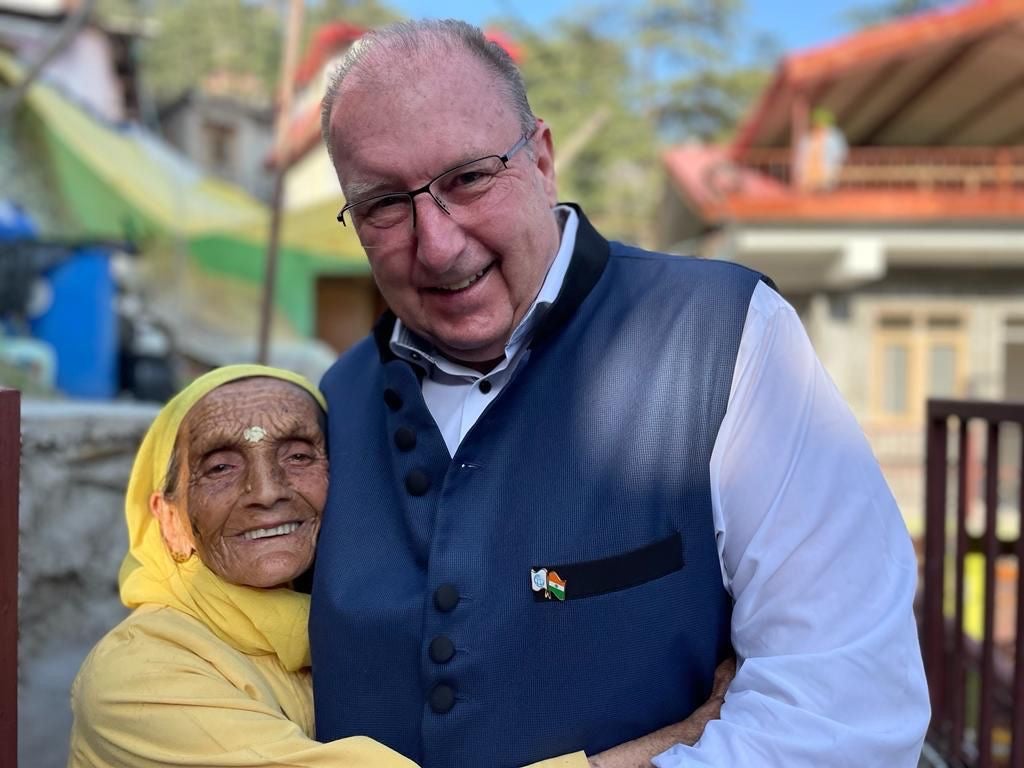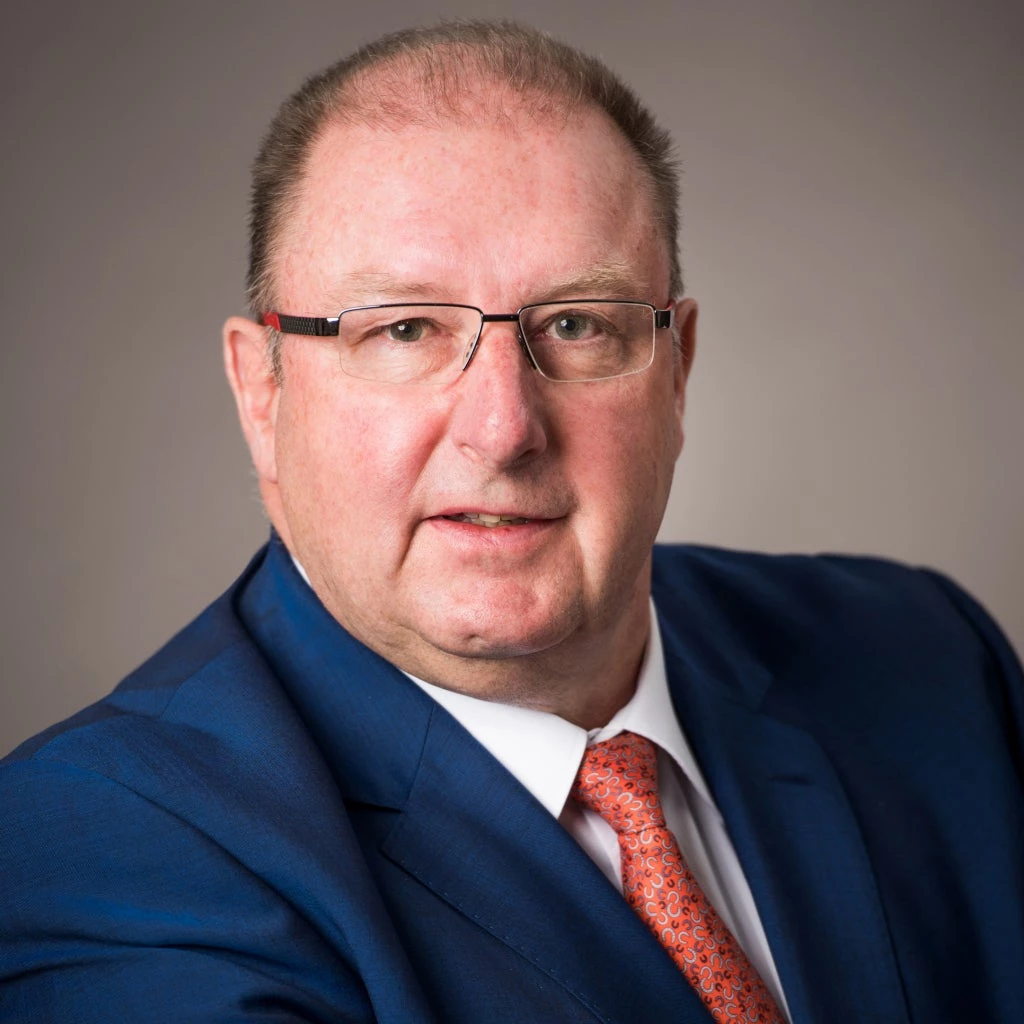 children in a classroom
children in a classroom
The field of development is the best place to be. And as I reach the home stretch of 37 years at the World Bank, I can say unequivocally that I am retiring from the best job in the world. With my teams, I have been fortunate to help with the world’s most pressing issues and make a difference—from the political and economic impasse in Malawi in the 1990s to the more recent COVID-19 pandemic in South Asia. The terrain of development comes with challenges and requires patience and persistence—I have always contended that if you are not frustrated at least three times a day in development, you are not working hard enough.
Etched in my mind forever
What made each new dawn in development worthwhile above all, were the countless people we were fortunate to help. Their stories in turn, have touched me deeply. Like the 87-year-old woman from Himachal Pradesh, India, who finally enjoyed clean, affordable drinking water after a painstaking wait of 75 years, thanks to the World Bank Water project. Or the single mother in Lusaka, Zambia, who benefited from a small loan to start a hair salon and create a livelihood for herself. I will never forget the image of children in Malawi back in the 1990s, rushing into schools, hungry to learn after school fees—often unaffordable for poor households—had been waived by the new government. That experience taught me just how important education is, especially for young girls. And then there’s the carpet weaver from downtown Cairo who employed women from her neighborhood, gaining entrepreneurial experience and enabling other women to participate in the labor force. Women helping women secure financial freedom, what a win that is for development.
These experiences resonated deeply with me, having worked from a young age on a small family farm in Germany, milking cows, baling hay and working the fields with my parents and grandparents. I was raised by my mother and grandmother—strong, independent women with their own bank accounts and titles to their land. I only found out much later during my early missions that many women around the globe did not have such privileges. I have always remembered my roots throughout my professional journey, from becoming a licensed farmer and working on a dairy farm in Upperville, Virginia, to my military service and eventually getting a PhD and joining the Bank. Given my upbringing, I strongly identify with many of our hard-working beneficiaries, often farmers themselves.
Challenging the status quo
Throughout my time at the Bank, two core principles have driven my work.
First, always understand what a client wants. What the client wants might not always be what we want but listening to the client makes the biggest difference in our work.
Second, always look for solutions. While we sometimes run into constraints, there are always creative ways to work around them and deliver a winning solution to our clients.
For the fact is, when you work in development, you are often trying to convince people who are comfortable with the status quo to change . Change is not easy. It is therefore our job to ease our partners into the transition, be sensitive and nuanced in our approach, and make the change easier.

The changing face of development
The face of development has changed since I started over three decades ago, buoyed with optimism in the 1990s. On my first mission as Bank staff to Zambia in February 1990, Nelson Mandela was released. The sense of hope and enthusiasm was electric among global leaders and members of the African National Congress who were staying in the same hotel as the World Bank team. The collective desire for progress was undeniable.
In the subsequent three decades I worked at the Bank, we witnessed the drive towards globalization and global inclusion. We saw real multilateralism at play on the world economic stage with relatively new World Bank members like China and the former Soviet Union states, alongside Europe, Japan, the United States, and other longstanding World Bank members coming together and working in harmony.
Today however, the world has become more polarized. I am not sure we will again see the kind of global kinship of the past 30 years, especially given the unprecedented increase in nationalism we are witnessing. And this inward-looking trend is increasingly shaping the global economy. Therefore, it has become more important than ever to factor the shifting political landscape into our approach to development. Or else, we are missing an important piece of the puzzle in our work to end poverty and boost prosperity worldwide.
Fast cars, teamwork, and agility
Despite this changing world, I do believe that the World Bank will continue to be the premier transformational partner to countries because of our advocacy, our convening power, our analytics, and our resources. As I have said before, development requires change, which is not easy. Adapting to evolving circumstances and prioritizing speed in our response should be the focus of all development professionals . Only then can we deliver the transformation that is needed to confront climate change, economic stagnation, food insecurity, and the other big challenges of our time.
Anyone who has worked with me knows that I have been a huge fan of Formula 1 since elementary school. Not just because of the excitement surrounding the sport, but also because there are some valuable lessons to be learned in agility and speed.
For those unfamiliar with Formula 1, in this circuit-based motorsport, the race car drivers must make one or two strategic pit stops for a mere 2-3 seconds to rapidly change tires and sometimes fix damaged parts, during a high-intensity race towards a win. That’s many people coming together within less than 2 seconds to take ownership of what they know so that the driver can win. Our work in the South Asia region to get a COVID Response Project going within four weeks exemplifies the speed and agility of a Formula 1 pit stop. Team members each knew what to do, and clearance and approval was turned around in not days, but hours, with every team member coming in right when their expertise was needed to help countries mitigate the crisis swiftly.
This kind of agility should be the norm at the Bank and for everyone working in development. To make this happen consistently requires a bold leap toward empowering people and trusting them to do the right thing.

Empowerment and trust: Two sides of the same coin
I have often said that in employment, it is who you work for that matters, not what you do. I have had the good fortune of working for some of the greatest bosses at the World Bank and they helped me grow. When I became a manager myself, I had direct reports who had stronger subject matter expertise than I did and carried the team on their backs. I made it a point to trust my team, and in the rare case when mistakes happened, I allowed them to learn from their experience and grow. This enables the team in turn, to learn to trust each other.
Development is a great field for young professionals passionate about making a difference . To those who are just getting started, I’d say “go full throttle” while trying out different opportunities, even if some are outside your comfort zone. Don’t forget to see every opportunity and challenge that comes your way as a chance to do better and make a difference in the world. And appreciate every moment—even the frustrating ones.
After all, it is the best job in the world.



Join the Conversation